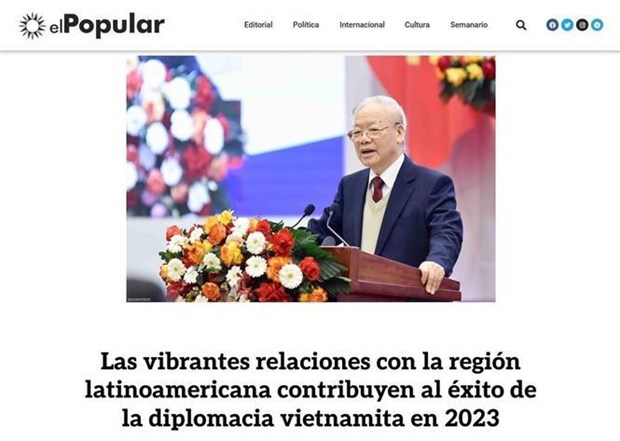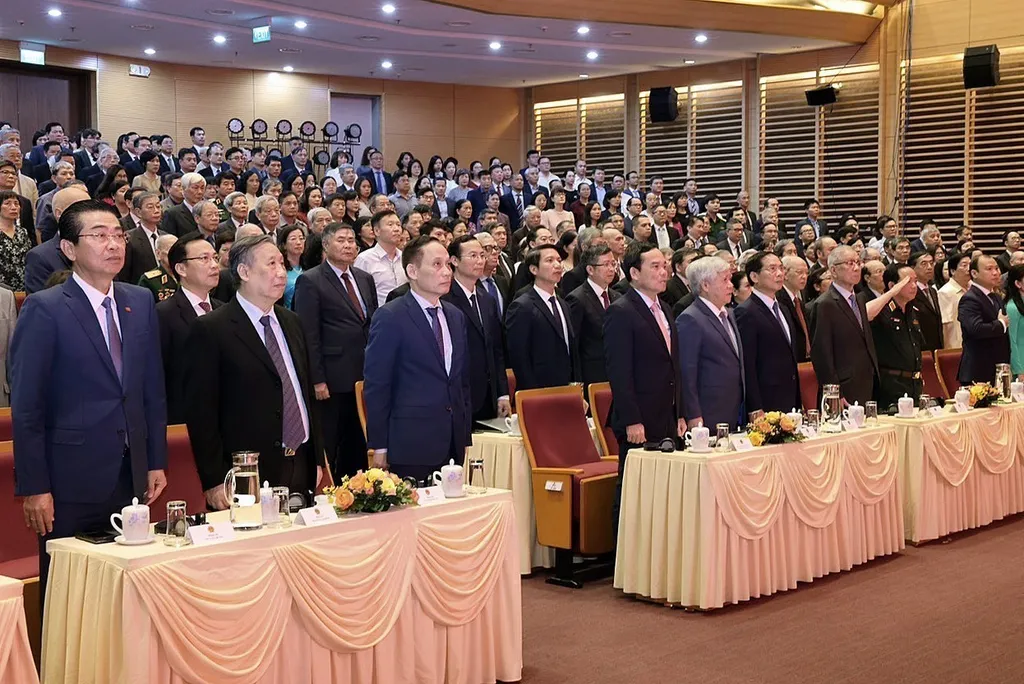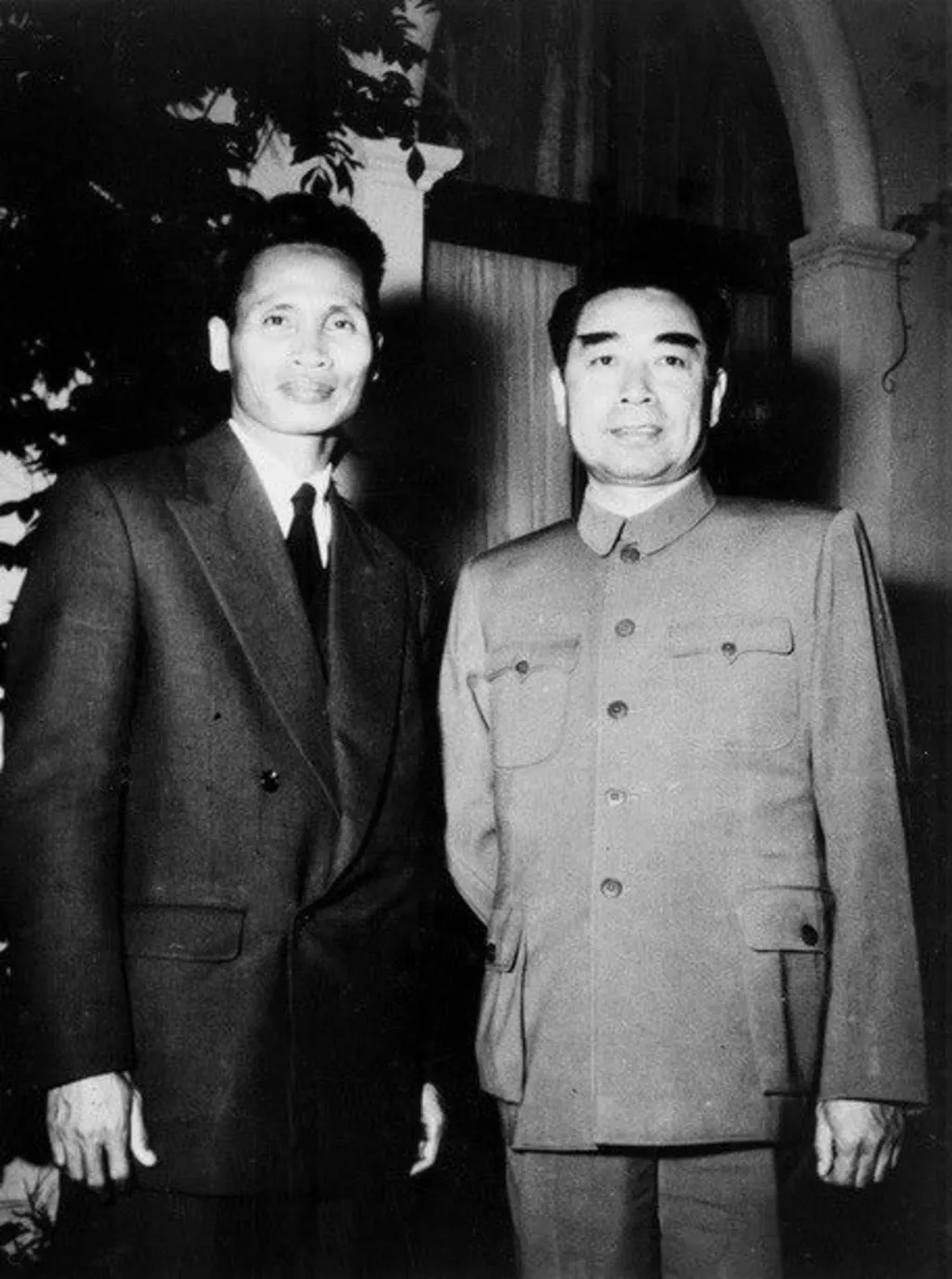 Politics & Law
Politics & Law

 |
| A solemn ceremony was held in Hà Nội on Thursday to mark the 70th anniversary of the Geneva Agreement (July 21, 1954). VNA/VNS Photo Lâm Khánh |
HÀ NỘI — The Geneva Conference was the first major international multilateral conference Việt Nam had attended to negotiate and sign international treaties with the direct involvement of major powers.
That was the remark by Bùi Thanh Sơn, Minister of Foreign Affairs, at the commemorative ceremony "70th anniversary of the Geneva Agreement on the Cessation of Hostilities in Việt Nam" in Hà Nội on Thursday.
He said the Geneva Agreement was an accord of epochal significance, representing a diplomatic victory for the three Indochinese countries (Việt Nam, Laos and Cambodia) and a common victory for all oppressed people worldwide.
"Việt Nam's diplomatic victory at the Geneva Conference and military victory at Điện Biên Phủ have inspired colonised countries and peace-loving people around the world, reinforcing their belief in justice, morality and the struggle against colonialism," said Sơn.
The negotiation process, Sơn said, had offered profound lessons that have shaped Việt Nam's diplomatic identity. One key lesson involves the unwavering commitment to independence and self-reliance.
Persevering in goals while applying flexibility in strategy is another lesson reflected in the "bamboo diplomacy" spirit of being firmly rooted yet adapting to circumstances.
Another lesson centres around combining national strength with international solidarity. Today, this spirit of collaboration translates into Việt Nam's active participation in global organisations and its pursuit of peaceful resolutions to international conflicts.
Speaking at the event, Deputy Prime Minister Trần Lưu Quang cited the Geneva Agreement as a significant milestone in Việt Nam's history, where the fundamental rights of Việt Nam's people, namely independence, sovereignty and territorial integrity, were officially recognised by major powers for the first time.
He said the diplomatic victory had affirmed Việt Nam's commitment to peace, justice and righteousness, and conveyed a message of Việt Nam being willing to cooperate amicably with all countries.
"The Geneva Agreement has fuelled global anti-colonial movements, heralding the demise of colonialism," said Quang.
Lao Ambassador to Việt Nam Khamphao Ernthavanh said the Geneva Agreement was a tremendous victory where France and other participating countries pledged, for the first time, to respect the independence, sovereignty and territorial integrity of Indochinese countries.
"The three Indochinese countries, which stood shoulder-to-shoulder in the fight against French colonists, will continue to bolster cooperation and support each other to safeguard national independence and liberty and facilitate economic growth," said the ambassador.
Cambodian Ambassador to Việt Nam Chea Kimtha cited the Gevena Conference as a testament to the importance of all-stakeholder involvement in resolving international issues.
The conference, she said, was the fruit of a joint effort by the international community to avoid military confrontation amid the far-reaching impact of the Cold War at the time.
"The conference issued a declaration urging concerned countries to respect the independence, sovereignty and territorial integrity of Cambodia, Việt Nam and Laos, constituting a major step towards the restoration of peace in Indochina," said the ambassador.
 |
| Việt Nam's then Deputy Prime Minister and lead negotiator Phạm Văn Đồng (left) and China's Prime Minister Zhou Enlai at the Geneva Conference. — VNA/VNS Photo Đinh Thị Ngọc Liên |
Major-General Phạm Sơn Dương is the only son of the late Prime Minister Phạm Văn Đồng who was the lead negotiator of the Việt Nam Government at the Geneva Conference.
He told Việt Nam News that President Hồ Chí Minh instructed his father to remain steadfast in principle during negotiations while exhibiting flexibility in tactics to achieve the goal of compelling France to recognise the independence, sovereignty and territorial integrity of the Indochinese countries.
"The signing of the agreement went beyond the major powers' initial intention, which was to limit the cessation of hostilities in Việt Nam, Laos and Cambodia within the framework of a simple Korean-War-style ceasefire agreement," said Dương. VNS




